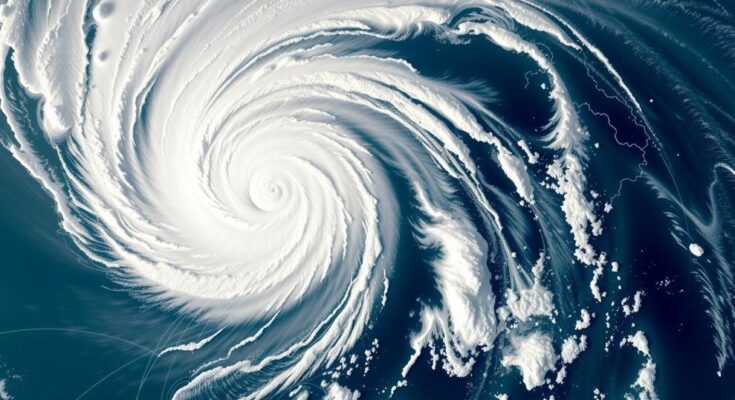Cyclone Chido is approaching the Indian Ocean islands of Comoros, Madagascar, and Mayotte, prompting closures and red alerts as significant impacts are expected. Mozambique anticipates over 2 million people may be affected as the cyclone is forecasted to bring destructive winds and severe flooding. Emergency preparations are underway in all affected regions.
The Indian Ocean islands of Comoros, Madagascar, and Mayotte are preparing to face Cyclone Chido as it approaches the east coast of Africa. Authorities on the small archipelago of Comoros have ordered the closure of schools in anticipation of the cyclone’s landfall, which is expected early Saturday. The storm is predicted to pass Madagascar’s northern tip before reaching Mayotte, prompting local officials to issue a red alert for the French territory, the highest level of warning available.
In the broader region, Mozambique has also declared a red alert for the northern provinces of Cabo Delgado and Nampula. Officials estimate that more than 2 million individuals could be affected by the cyclone as it is expected to make landfall in Mozambique early Sunday, bringing with it forecasted winds of up to 200 kilometers per hour (124 mph). The director of the National Emergency Operations Center, Ana Cristina, noted, “We believe that we can initially start working with an estimate of around 2.5 million people in the provinces of Cabo Delgado and Nampula who may be affected and will need to be rescued.” The threat extends even to landlocked Zimbabwe, which is also preparing for potential impacts from Chido.
In Madagascar, precautionary alerts have been disseminated via cellphone notifications and radio broadcasts since Thursday, urging residents to take appropriate measures. Emergency evacuations are already underway in the northern Diana region, where the cyclone’s effects are anticipated to be particularly severe, potentially affecting nearly 20,000 people. In response to the impending disaster, local authorities have been mobilizing food and emergency supplies, including water pumps and generators, since earlier in the week.
To support Mayotte, the French government is deploying approximately 110 personnel, including emergency responders and firefighters from Réunion, alongside essential emergency equipment. As noted by Col. Frédéric Leguillier of Mayotte’s fire and rescue service, this assistance includes search dogs and specialists trained in urban rescue operations.
The cyclone season in this region spans from December through March, a period during which the islands have experienced numerous severe storms. Recent devastating cyclones, such as Idai in 2019 and Freddy in 2022, have underscored the growing threat posed by these weather events, exacerbated by climate change. According to Crisis24, Cyclone Chido is likely to bring about significant flooding and landslides, which pose an increased risk of waterborne diseases such as cholera, as well as dengue fever and malaria, similar to past events following Cyclone Idai.
The growing intensity and frequency of cyclones in the Indian Ocean region have raised concerns, particularly among the island nations of Comoros, Madagascar, and Mayotte. These areas, particularly vulnerable due to their geographical locations, are entering a period that has historically been marked by severe weather. The past cyclones have left devastation in their wake, leading to loss of life and significant humanitarian crises. As the impacts of climate change become clearer, efforts to prepare and respond effectively to such disasters are critical for the safety and well-being of the affected populations.
In conclusion, the imminent arrival of Cyclone Chido poses a significant threat to the islands of Comoros, Madagascar, and Mayotte, along with the northern coastal provinces of Mozambique. The authorities’ swift response, including evacuations and alerts, highlights the urgency of disaster preparedness in the face of the escalating threat of cyclones in the Indian Ocean region. With the historical context of previous cyclones informing current actions, the focus remains on safeguarding lives and mitigating potential damage from this latest storm.
Original Source: abcnews.go.com




